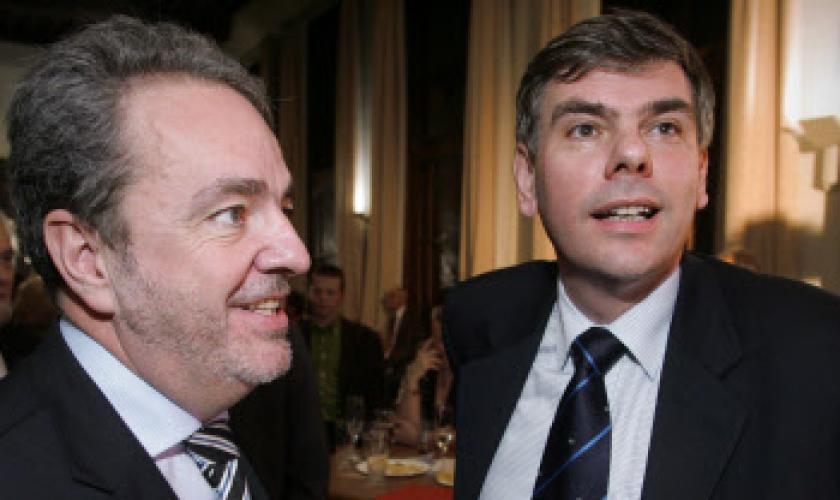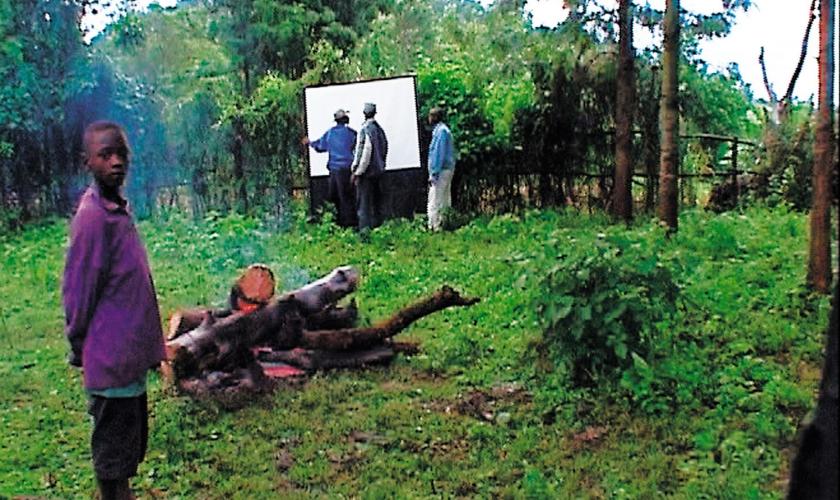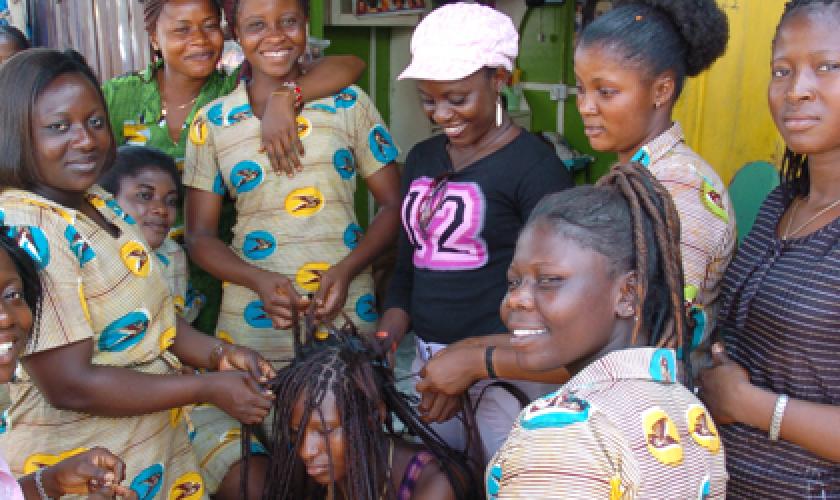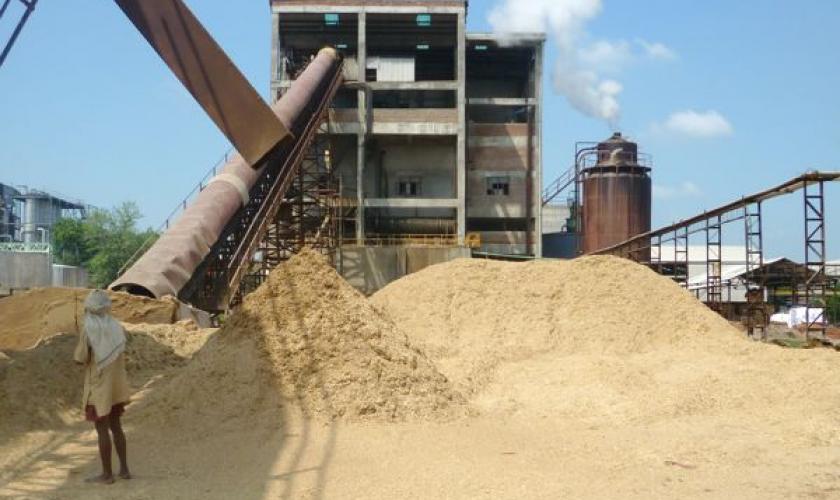Apache.be’s Tom Cochez spent two years investigating the remarkable relation between Vlaams Belang, its top people and money. Dozens of conversations with people who have been involved with the party since the early days, who were or still are in the heart of the party and who witnessed things with their own eyes, paint an alarming picture of the money machine behind Vlaams Belang and raise one question: why does the party systematically overpay friends in the printing business, sponsors’ companies or organisations of its own party members?
Vlaams Belang spends big sums of money on advertising and propaganda, more than any other political party in Flanders. In 2012 the advertisement spending amounted to no less than 5.4 million Euros. That is almost one million more than separatist right-wing party N-VA, which was almost double the size of Vlaams Belang after the latest federal elections, and two and a half times more than a party of similar size, such as centre-right liberal party Open Vld.
The print orders for all party brochures and booklets are sent almost entirely to printer Drukkerij Verspecht. The collaboration with the graphic design department (DTP) of Vlaams Belang is going at full blast.
But why was promotional material of bankrupt first division football club Beerschot also drafted at VB headquarters? Or a former Dutch minister’s book? Or befriended foreign political parties’ leaflets? Why were VB heavyweight Filip Dewinter and Drukkerij Verspecht’s manager regulars in the VIP boxes at Beerschot’s stadium? Why does Dewinter consort at all with second-rate businessmen, some of whom have been accused of fraud? Why, for example, did the wealthy contractor and real estate player Walter Verbraecken pour money into VB for years? How come the party’s heavyweight employed three manifestly incompetent secretaries? And why did president Gerolf Annemans eventually turn to his own party for an interest-free loan from the party treasury?
Apache.be’s Tom Cochez spent two years investigating the remarkable relation between Vlaams Belang, its top people and money. Dozens of conversations with people who have been involved with the party since the early days, who were or still are in the heart of the party and who witnessed things with their own eyes, paint an alarming picture of the money machine behind Vlaams Belang and raise one question: why does the party systematically overpay friends in the printing business, sponsors’ companies or organisations of its own party members?
The first chapter of the investigation focuses on the party’s printing deals, a very lucrative business. VB spends millions of Euros on the massive printing of party magazines, leaflets, posters and books. In the past, the party’s different departments were allowed to choose their own printer, but since some years, all orders are centralised and outsourced to one printer: Drukkerij Verspecht in the Flemish Londerzeel.
The decision to have all material printed in one place was taken after Drukkerij Verspecht switched hands in 2004. One of the new owners, Johan Van Driesschen, is a friend of Filip Dewinter’s. Both gentlemen frequented the VIP lounges of recently dissolved football club Beerschot. It turns out that Beerschot had its club journal drafted and prepared by Vlaams Belang’s graphic design department and afterwards printed at Drukkerij Verspecht. Former Dutch minister Hilbrand Nawijn’s book ‘De visie van Nawijn’ underwent the same process, and so did promotional material for ‘Steden tegen islamisering’ (Cities against islamisation), a network set up by Dewinter and Swedish-German businessman and Zionist Patrik Brinckmann.
The second chapter zooms in on business deals between the party and companies owned or represented by some of its members. Examples are – among others – Flämisches Weinhaus and QV, two wine-businesses that supplied the party’s big 30-year anniversary event and that are both led by long-time party members, and Euphony, a pyramid scheme-like mobile phone and internet provider for which some higher-profile VB members have been trying to sell subscriptions through the party.
While going through the financial reports of the previous years, Cochez made the striking observation that the personnel costs increased dramatically in the last year: in 2010 and 2011 the umbrella nonprofit Vrijheidsfonds vzw had personnel costs of 227,169 and 267,240 Euros respectively, which jumped to 1,168,010 Euros in 2012. This raises the question, Cochez argues, if, through lack of a very bright electoral future, Vlaams Belang, or more specifically Filip Dewinter’s entourage, has decided to start using up the party’s treasury at high speed at this point.
In the third chapter Cochez has a closer look at the ties Vlaams Belang has with its sponsors. The party rents its offices and locations for hosting receptions or fundraising events from one of its sponsors. But in addition to that, its leaders have accepted gifts and other privileges such as a trip to Las Vegas, a family cruise on multiple occasions. Even the party’s secretaries are linked to sponsors or sympathisers. Of the three secretaries Filip Dewinter has, two are wives of sponsors and one is the wife of a police officer who works for the information department of the Antwerp police, a department that is said to ‘know everything’, from upcoming demonstrations and possible extremist movements, to flings of local politicians…
The final chapter of the investigation is about the (official) president of Vlaams Belang, Gerolf Annemans, and the years of disagreements and succession struggles that took place behind the scenes. When the party needed a new president in 1996, its leading figures had not wanted Annemans for the job, even though he was in pole position. Eventually Frank Vanhecke, a close friend of poster boy Dewinter, became the new president. Something similar happened eight years later in 2004, when people at the top of the party made sure that not Annemans but Bruno Valkeniers got the job.
The reasons for Annemans not being popular in the party’s leading circles were that he was jealous, lazy and, above all, he constantly had money problems and got himself into debt. To such an extent even that he had to turn to the party for interest-free loans several times. It wasn’t until the friendship between Filip Dewinter and Frank Vanhecke turned sour and ended in an almost Shakespearian tragedy (with Vanhecke’s lover Marie-Rose Morel, who would later die of cancer, in a leading role) that Annemans rekindled his hopes to achieve his long-time dream of becoming Vlaams Belang president.
Prior to publishing the investigation Apache had asked Vlaams Belang eleven questions, which they did not answer. They did send a reaction, saying that they are “not willing to react to the questions that were sent the evening before the publication, because, since we were not consulted during the investigation itself, there can be no talk of a mutual debate, a rectification or a reaction.”
Translated by Rafael Njotea
ONLINE
- Het geld van het Vlaams Belang (Inleiding) (NL) - Apache.be, 25 juni 2013
- Het geld van het VB (1): Eigen drukkerij eerst (NL) - Apache.be, 25 juni 2013
- Het geld van het VB (2): Lucratief bijklussen voor de partij (NL) - Apache.be, 26 juni 2013
- Het geld van het VB (3): Sponsors en secretaresses voor Dewinter (NL) - Apache.be, 27 juni 2013
- Het geld van het VB (4): De voorzitter en de partijkas (NL) - Apache.be, 28 juni 2013




